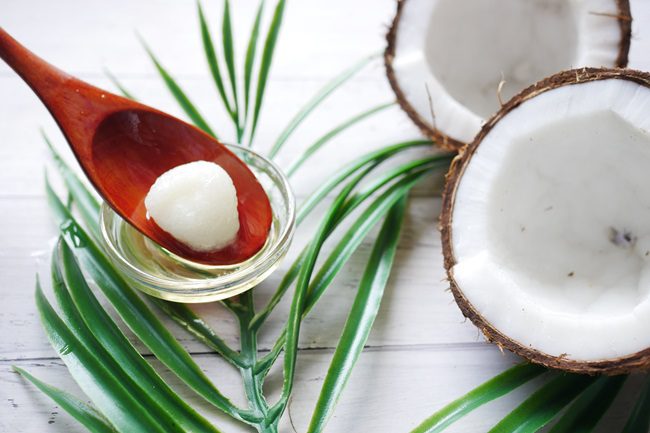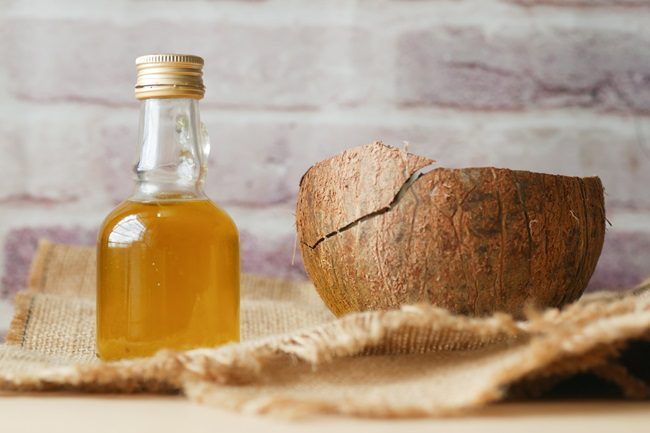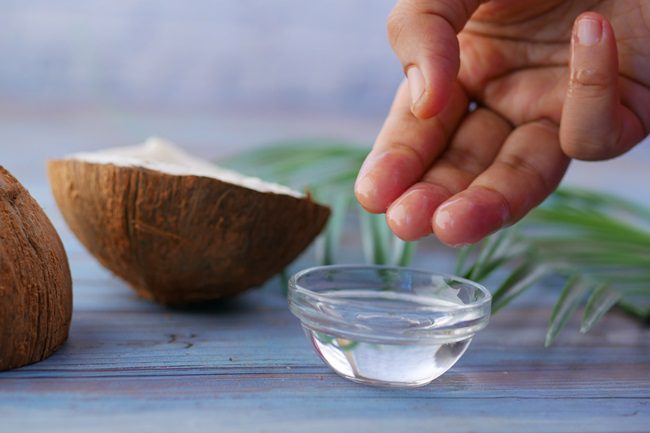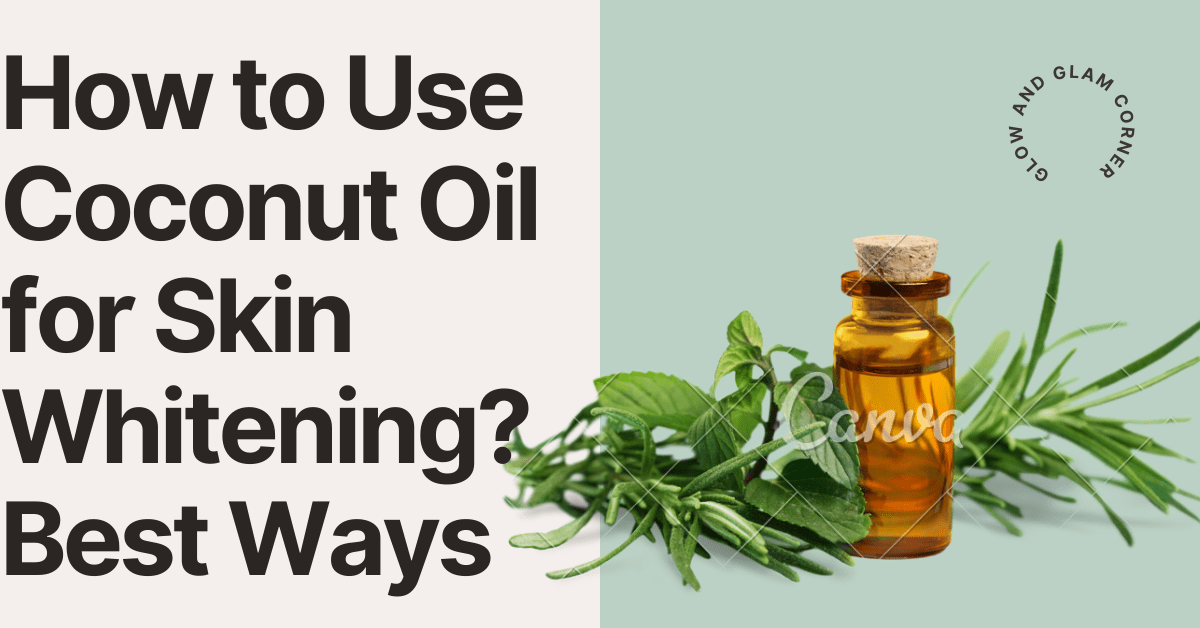Indeed, beauty isn’t defined by skin tone. But it’s also unpleasant to wake up in the morning and see your face has a poor tan. Everyone aspires to present their best selves every day.
As a result, we feel more prepared to handle any problems the day throws our way, which is a confidence booster for us. And a significant portion of our ongoing endeavor to “look good” involves having healthy, radiant, and evenly toned skin.
Many of us suffer significantly from uneven skin tone, yet it is treatable organically without harming our skin with harsh chemicals or bleaches. Coconut oil is a fantastic component for lightening the skin, and in this post, we’ll talk about many ways on how to use coconut oil for skin whitening. Continue reading.
In This Article
Top 10 Benefits of Coconut Oil

Due to their distinct chemical makeup, many tried-and-true substances, like coconut oil, work in multiple ways instead of just one. The many advantages of coconut oil include:
- Intense hydration
- Recognized to possess antimicrobial qualities.
- Enhances the softness and smoothness of the skin.
- Decreases the visibility of wrinkles and fine lines.
- Aids in the appearance of a skin tone imbalance
- Antioxidant-rich
- Simple absorption
- A base for exfoliants
- Minimizes the visible signs of inflammation and redness.
- Luxurious odor!
What is Skin Whitening?
Employing chemicals to lighten or give an even skin tone by lowering the melanin content in the skin is known as skin whitening, also known as skin lightening and skin bleaching.
While some compounds are hazardous or have dubious safety records, others have been demonstrated to be helpful in skin whitening. This includes mercury compounds, which can adversely affect the kidneys and the nervous system.
What are the coconut oil benefits for skin whitening?
Acts as an excellent moisturizer
Include coconut oil in your skin care regimen immediately if your dry skin makes your face seem patchy and dark.
Provides Antioxidants
Coconut oil provides a substantial number of antioxidants, according to research. They accelerate cell renewal, which lightens the skin.
Acts as a sunscreen
Applying virgin coconut oil to your skin before going outside will protect it from damaging rays by creating a barrier between it and the sun. It contains an SPF, a temporary natural sunscreen when you are out and about.
Vitamin E-rich
Vitamin E, well-known for its ability to treat skin imperfections and give us a fair complexion, is abundant in coconut oil.
Dark Circles and hyperpigmentation are combatted
It just takes a weekend binge-watching a series or a night of working to allow that unwanted visitor to sleep right beneath your nose. Virgin coconut oil, on the other hand, can help you solve this issue. It can even lessen hyperpigmented patches by whitening the dark under-eye hollows.
Medium-chain fatty acids are present
Medium-chain fatty acids found in coconut oil provide a natural skin-brightening effect. The formation of melanin, the pigment responsible for skin color, is decreased due to these fatty acids’ deep penetration into the skin. Coconut oil contributes to a more equal and lighter skin tone by reducing melanin formation, which has the desired whitening effect.
Which is the Right Coconut Oil for Skin Whitening?
Choosing the best coconut oil for skin whitening is crucial if you want to benefit from its effects on the skin. Extra virgin coconut oil for skin whitening guarantees that you get all of the advantages. Virgin coconut oil is derived from live coconuts without chemicals, maintaining its healthy properties.
It is excellent for efficiently attaining skin-lightening goals since this unprocessed form ensures a higher concentration of minerals and antioxidants.
How to make coconut oil for skin whitening?
Combining coconut oil with other organic products can increase its ability to whiten skin.
Camphor and Coconut Oil for Skin Whitening:
Camphor can help calm inflamed skin and reduce inflammation when used with coconut oil, leading to a more even skin tone.
Coconut Oil and Baking Soda for Skin Whitening

Baking soda exfoliates the skin to remove dead skin cells and reveal a more radiant complexion. Dark stains can be removed with a mild scrub from this ingredient and coconut oil.
Coconut Oil and Turmeric for Skin Whitening

When combined with coconut oil, turmeric, a potent anti-inflammatory and antioxidant, aids in lightening the skin and decreasing pigmentation.
Lemon and Coconut Oil for Skin Whitening
When combined with coconut oil, lemon, which has inherent bleaching characteristics, intensifies the skin-whitening effect.
How to Use Coconut Oil for Skin Whitening
Follow these easy ways to integrate coconut oil into your skincare regimen for skin whitening:
- Use a mild cleanser to clean your face thoroughly.
- With a fresh towel, pat your skin dry.
- Warm up a tiny quantity of pure coconut oil in your hands.
- Use circular movements to massage the oil over your face and neck gently.
- Leave the oil on your skin overnight or for at least 30 minutes.
- Use warm water to rinse the fat away.
- Apply your usual moisturizer or serum next.
Precautions and Patch Testing
While most people believe coconut oil is typically harmless, proceeding cautiously and doing a patch test before lightening the skin is critical. Apply a little coconut oil to your inner forearm or another small area of skin, whichever is most comfortable for you, and keep an eye out for any unpleasant reactions such as redness, itching, or irritation.
Applying coconut oil to your skin is usually harmless as long as no unwanted side effects develop within 24 hours. See a dermatologist before incorporating coconut oil into your skincare routine if you have allergies or pre-existing skin conditions.
Is Coconut Oil Suitable for All Skin Types?

Most skin types, including dry, regular, and mixed skin, can benefit from coconut oil. While its lightweight texture keeps it from being overly oily for those with average or diverse skin types, its moisturizing qualities make it excellent for dry skin.
Coconut oil should only be used sparingly on people with oily or acne-prone skin since it might clog pores and worsen breakouts. It’s advisable to perform a patch test to determine how your skin will respond before using coconut oil on your face.
Expected Results and Timelines
It’s essential to remember that individual results with coconut oil for skin whitening may differ regarding discernible skin tone changes. Results usually take several weeks of consistent use to become visible. Consistency and patience are essential when using coconut oil as part of your skincare regimen to whiten your skin.
Daily vs. Occasional Use of Coconut Oil for Skin Whitening
The frequency with which coconut oil is used for skin whitening will be determined by personal preferences and skin tolerance. To get more dramatic skin-whitening results, some individuals use coconut oil as a moisturizer or as part of their evening skincare routine.
Others may prefer to use coconut oil only once or twice a week, allowing the benefits to be absorbed gradually by the skin. Then, alter your usage to find the right balance for your skin.
Parachute Coconut Oil for Skin Whitening
Parachute coconut oil stands out as a reliable alternative for efficient skin whitening among the companies selling coconut oil. It is produced from carefully chosen coconuts to guarantee its purity and quality.
Many users have appreciated and publicly acknowledged its efficiency in attaining skin-lightening outcomes. You can be confident that you are using a product with a solid reputation for dependability and successful results when you use Parachute Coconut Oil in your skincare regimen.
How to Store Coconut Oil
The right kind of storage is crucial for coconut oil to maximize its efficacy and shelf life. Coconut oil should be kept in an excellent, dark location away from heat and sunshine.
The quality of the oil can be lowered, and its shelf life is shortened by exposure to heat and light. Additionally, ensure the container is well shut to remove any air or moisture that might degrade the oil.
Safety During Pregnancy
Using coconut oil for skin whitening during pregnancy is usually safe. You should consult your doctor before incorporating new skincare products into your routine while pregnant. They can address any concerns you may have and provide tailored counsel depending on your specific situation.
Best Practices for Maximum Whitening
Consider the following tips to maximize the advantages of using coconut oil for skin whitening:
Consistency is crucial to success
Regularly incorporate coconut oil into your skincare routine for long-lasting effects.
Drink Water
Drink plenty of water and moisturize your skin to optimize your hydration levels.
Usage of Sunscreen
Use sunscreen regularly to protect your skin from harmful ultraviolet (UV) radiation, which can cause skin darkening.
Consume a well-balanced diet
Consume a well-balanced diet rich in nutrients and antioxidants to improve the overall health of your skin.
Maintain your calm
Continue to use coconut oil for skin whitening with patience and determination since visible results take time.
FAQs Related to “Coconut Oil for Skin Whitening”
Q: Can coconut oil whiten the skin entirely?
Even though coconut oil can aid skin whitening, it is unlikely to alter skin tone completely. The results vary depending on each person’s skin type and health.
Q: Can I use coconut oil as a natural sunscreen?
Sunscreen should always be used with coconut oil because it has a low sun protection factor (SPF). It could offer some protection from the sun, but it is advised that you use a particular sunscreen to shield your skin from harmful UV rays adequately.
Q: Can coconut oil clog pores?
A: According to reports, coconut oil is unlikely to clog pores and is non-comedogenic. On the other hand, those with oily or acne-prone skin should patch test it and watch how their skin reacts to it to ensure it works for them.
Q: Can coconut oil remove dark spots?
Although individual results may vary, coconut oil’s moisturizing and antioxidant properties may help to lessen the appearance of black spots over time.
Q: Can coconut oil be used as a makeup remover?
A: Coconut oil may be used as a natural makeup remover due to its ability to dissolve cosmetic items. However, washing the face afterward with a gentle facial cleanser is advised to remove any lingering oil.
Wrapping Up
In the field of skincare, coconut oil has a lot of potential, especially for skin whitening. It is a fantastic complement to any cosmetic regimen because of its hydrating, antioxidant, and skin-lightening characteristics.
If people know the advantages, how it should be used, and any necessary safety measures, they may confidently use coconut oil for skin whitening. Take advantage of the many uses of coconut oil to acquire skin that is more luminous and brighter.
Are you prepared to discover coconut oil’s miraculous skin-whitening properties? Start implementing this natural solution into your skincare regimen immediately, and report back on how it works. You could develop into a happier and more attractive version of yourself if you follow the example of the many people who have realized the potential of coconut oil.
Hi, I'm Naznin! I really love making skin happy. I learned cool stuff about skincare and want to share it with you! Together, let's explore how to take care of our skin and feel awesome. Join me on this fun journey where we can be our beautiful selves!

